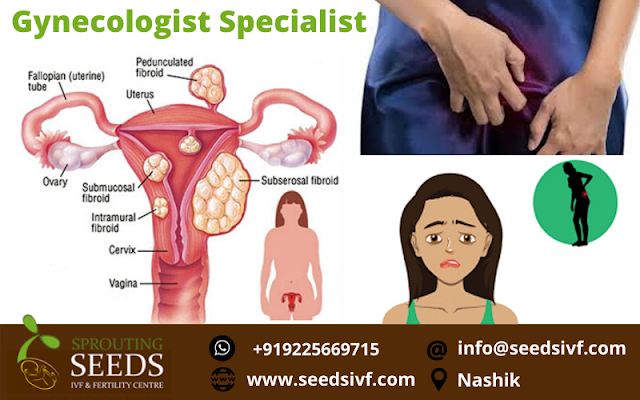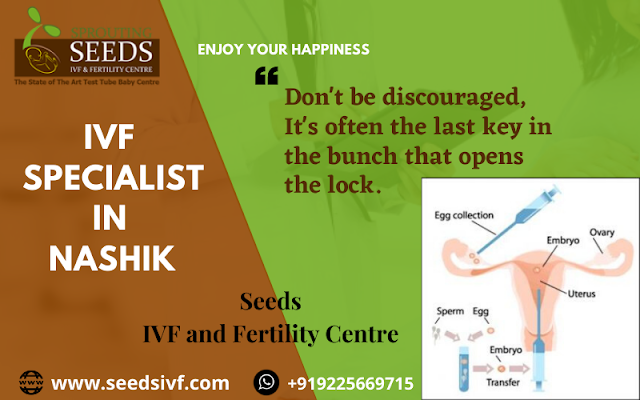What is Laparoscopy?
Laparoscopy
is just one type of operative procedure that uses a thin instrument called a
laparoscope. It is most commonly used to diagnose any abnormalities in the
internal organs of the abdomen, hence also known as diagnostic laparoscopy. The
name laparoscopy comes from the name of the laparoscope used to perform the
procedure. The main purpose of this surgery is to examine the abdominal organs
with minimal incisions in the body.
A
laparoscope is a long and thin instrument with a high-resolution camera and a
high-intensity light at the front end. A small incision (0.5-1 cm) is made in
the body and the laparoscope goes through it. The camera then sends the data in
the form of images and videos to the video monitor. In the traditional method,
the doctor had to make a large incision in the body to examine the internal organs,
including the eyes. However, with the help of a laparoscope, a very small
incision can be easily examined with the help of a camera. Furthermore, image
feeds can be recorded for future reference. In addition, biopsy samples can be
taken from the body in this manner.
Laparoscopic surgery can also be used for gastro operations, gynecological surgery or gallbladder surgery. This process is much less risky and more effective than the manual method.

Purpose
The main
purpose of laparoscopic surgery is to check for problems in the abdominal
region. In most cases, this is done when there is a condition in the patient's
abdomen or in the pelvic region. Although other non-invasive methods are
available to investigate the causes behind the problems, such as ultrasound or
sonography, MRI scans and CT scans. When an internal organ needs to be
diagnosed, laparoscopic surgery is used so that the doctor can prescribe the
appropriate medical treatment for it.
Laparoscopy
could be recommended by the doctor to examine the following organs:
- Liver
- Stomach
- Spleen
- Intestines
- Pancreas
- Appendix
- Reproductive
organs
- Gall
bladder
Why laparoscopy?
Laparoscopy
helps diagnose and treat problems in the reproductive organs. It can help find
the cause of symptoms such as pain or bleeding and the cause of infertility. In
most cases, the problem can be treated during the same procedure.
Laparoscopy
can be performed to detect and / or treat:
· Tubal
pregnancy: This occurs when the fetus is implanted in the fallopian tube. If
left untreated, the tube may rupture and bleed.
· Fibrous
(lumps of uterine muscle tissue): This can cause pain and bleeding. It can also
be diagnosed by ultrasound.
· A
blocked or damaged fallopian tube: This can make pregnancy difficult.
· Endometriosis
(growth of uterine tissue outside the uterus): This causes pain, bleeding and
difficulty conceiving.
· Stickiness
(scar tissue): This can cause pain and infertility.
· An
ovarian cyst (fluid-filled sac) or tumour (abnormal growth): an irregular cycle
of pain.
· Abdominal
enlargement: This is when the female organs come out or come out of the vagina.
·
Urinary incontinence: This happens when
urine leaks involuntarily.
Seeds IVF & Fertility Centre is a super
speciality hospital with all advanced modern facilities and
infrastructure. It is one of its kind
surgical laparoscopy
surgery centre in nashik. The Seeds IVF & Fertility
Centre is deals with all problems related to Laparoscopy system. We practice
perfect ethics and our goal is to provide quality care at an affordable price.
Our surgeon team is constantly working for the health and satisfaction of our
patients. If you looking for any laparoscopy health service then Seeds IVF
& Fertility Centre would definitely one of the
best choice.
Contact us: +919225669715 |
0253-2377272
Visit us: https://www.seedsivf.com/laparoscopy.php


